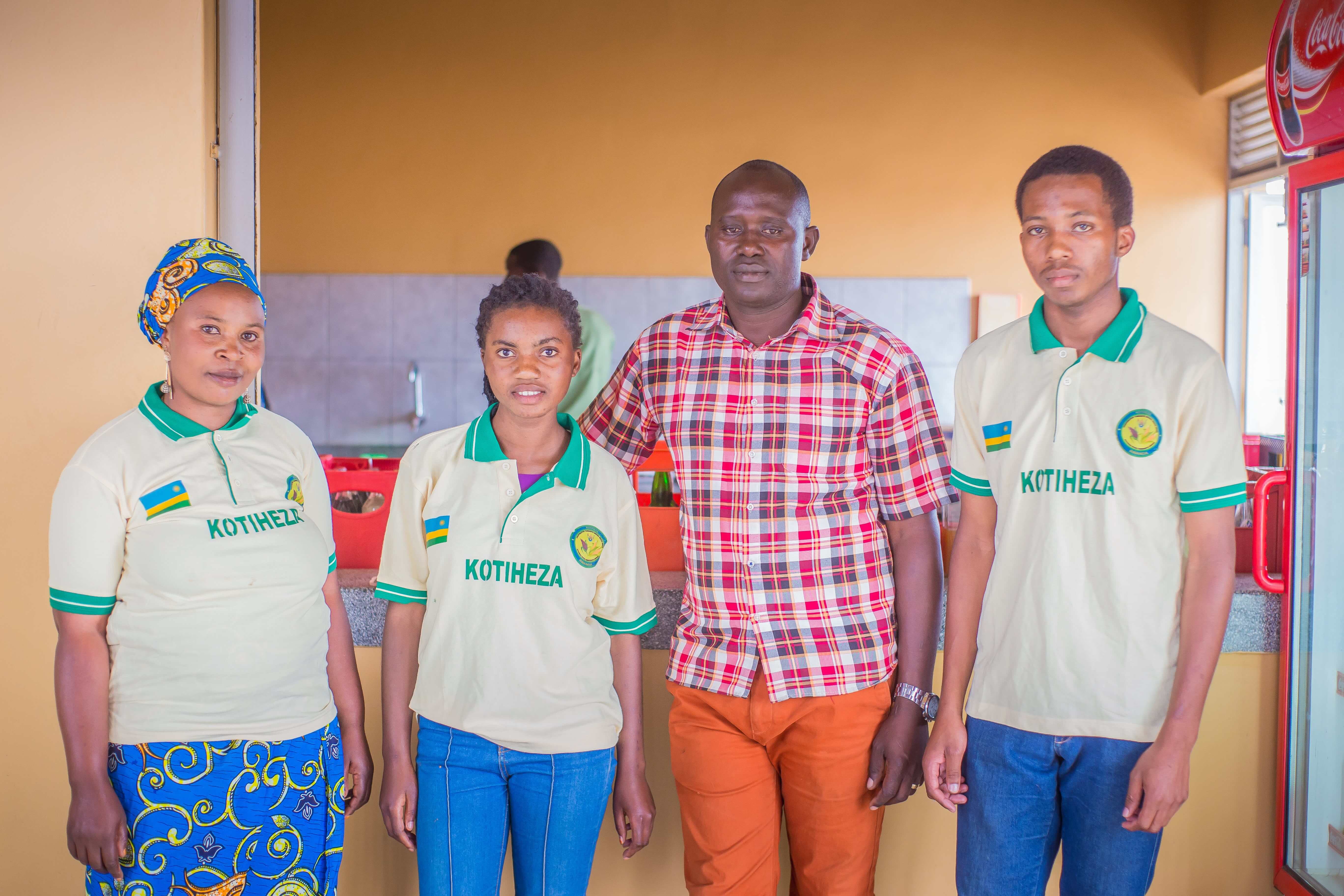In Rwanda from the capital city of Kigali to the borders with Democratic Republic of Congo or Uganda, cooperatives are building socially and economically resilient communities. TMA has interest in supporting women economic empowerment and this is being shown by its recent financial commitment to increase funding to women programmes. As well as its partnership with local organisations such as Profemme Twese/Hamwe to devote increased attention to forming cooperatives for women cross border traders to help them tap into their collective power.
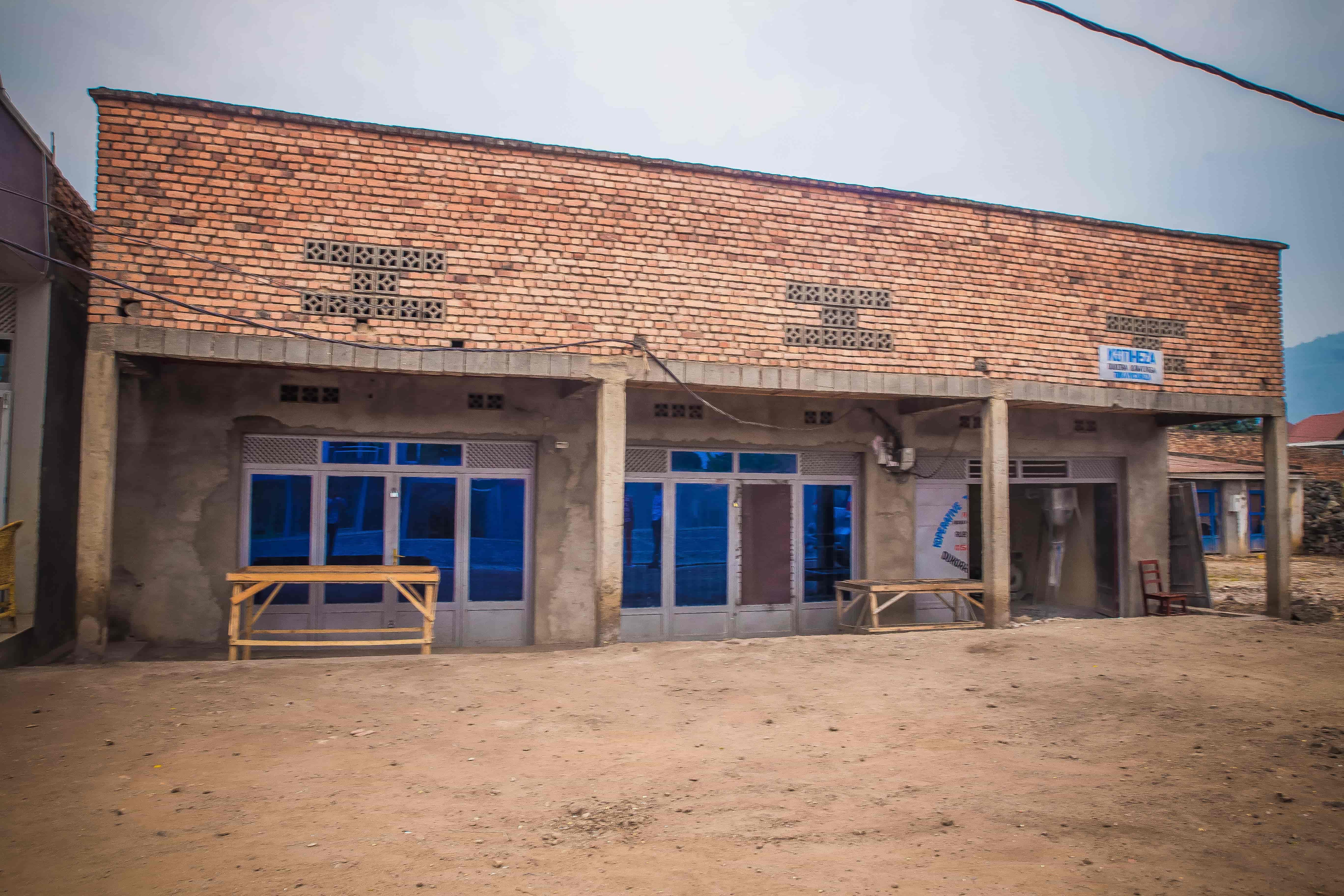
At the border of Goma and Rubavu, Kotiheza cooperative comprising of 36 women is milling, packaging and exporting maize flour to Uganda and Democratic Republic of Congo, in addition to distributing within Rwanda, as a result of this programme. Musa Abonabise is the President of Kotiheza cooperative, and the only man in the co-operative, “We started off as informal traders stationed right at the border of Goma and Gisenyi. Kotiheza was formed in 2011 when we came together to formalize our operations. Before becoming a cooperative, most of what we did was against the rules and regulations of cross-border trade. Pro-Femme/Twese Hamwe helped us found the cooperative, offered us training and advocated on our behalf with the Ministry of Trade and Industry to access financial grants. Our lives have been positively transformed.”
*Goma is the capital of North Kivu province in the eastern DRC. It is located next to the Rwandan city of Rubavu (also commonly referred to as Gisenyi).
Success shows in the ranking
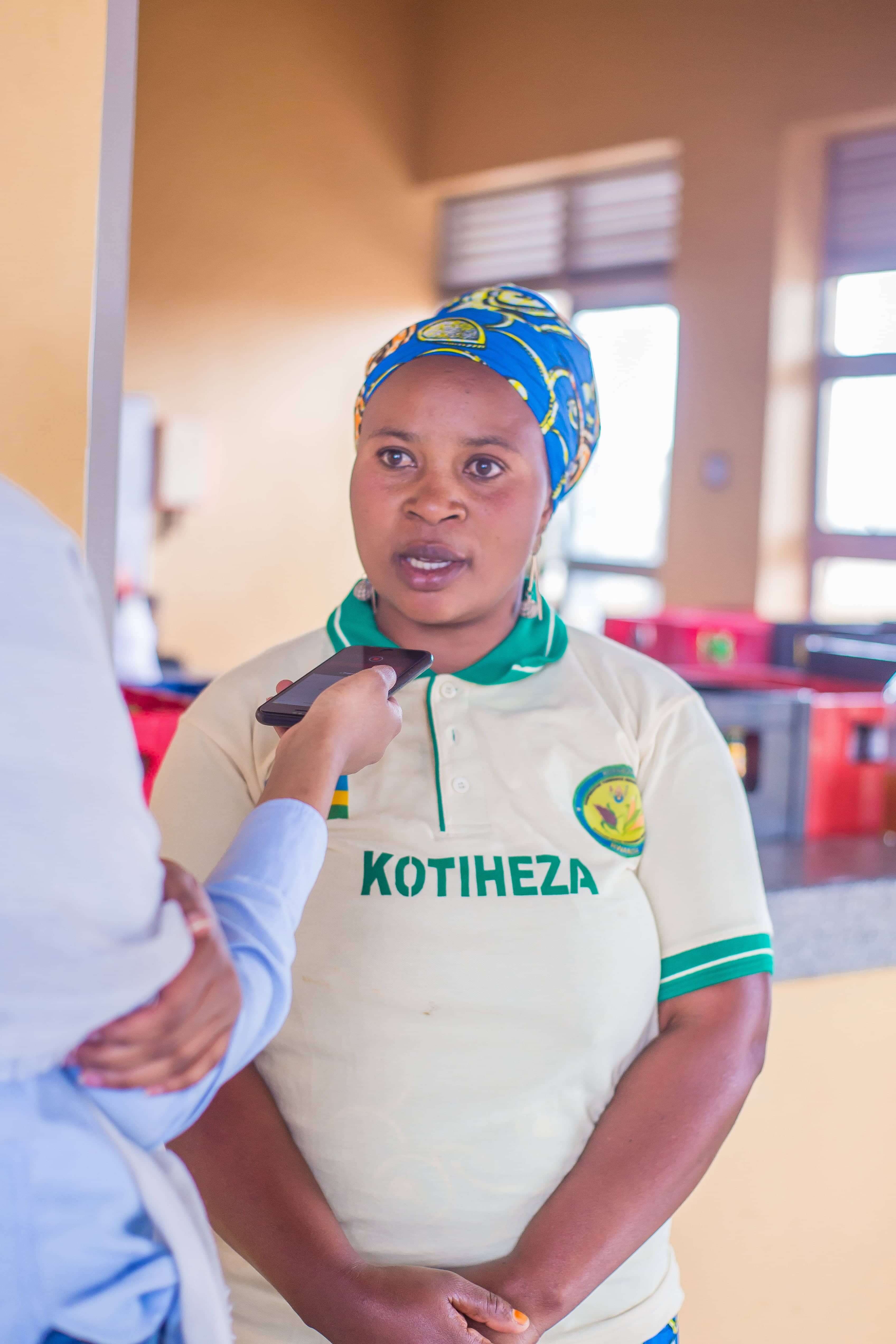
Joseline Twizereyimana the Vice President of Kotiheza Cooperative recalls her life before, “I was very poor and it showed in my body weight. I literally weighed 46 kgs. But now, Kotiheza has made it possible for my family and that of my fellow cooperative members to be placed in the third category of Ubudehe, ” Additionally, she is able to educate, decently clothe and pay health insurance for her children.
Ubudehe is a Rwandan home-grown development program whereby citizens are placed into different socio-economic categories, ranking from one to four. These categories inform the level of support families receive from government social protection programs. Category 1 ranks families who do not own a house and can hardly afford basic needs, while Category 4 consists of people who own large-scale business, individuals working with international organisations and industries, as well as public servants. According to Musa, all Kotiheza Cooperative members own their homes.
“We’ve come a long way since 2011,” Joseline says. “Trading was so difficult mainly because we were always avoiding the police and engaging in illegal practices. Now we are taxpayers and can sell our maize flour in neighbouring countries without worry.”
As Musa and Joseline take us on a tour of their restaurant they narrate how in just eight years, Kotiheza Cooperative transformed from just selling raw maize then milling and producing maize flour, to now selling value-added product in their own restaurant. “As you can see, we are one of the few restaurants that operate here at the Rubavu Cross-Border Market. When it was completed in March 2019, Pro-Femme/Twese Hamwe encouraged us to prepare ourselves and tap into the opportunities that would emerge from this new market facility.”
Fashionably made in Rwanda
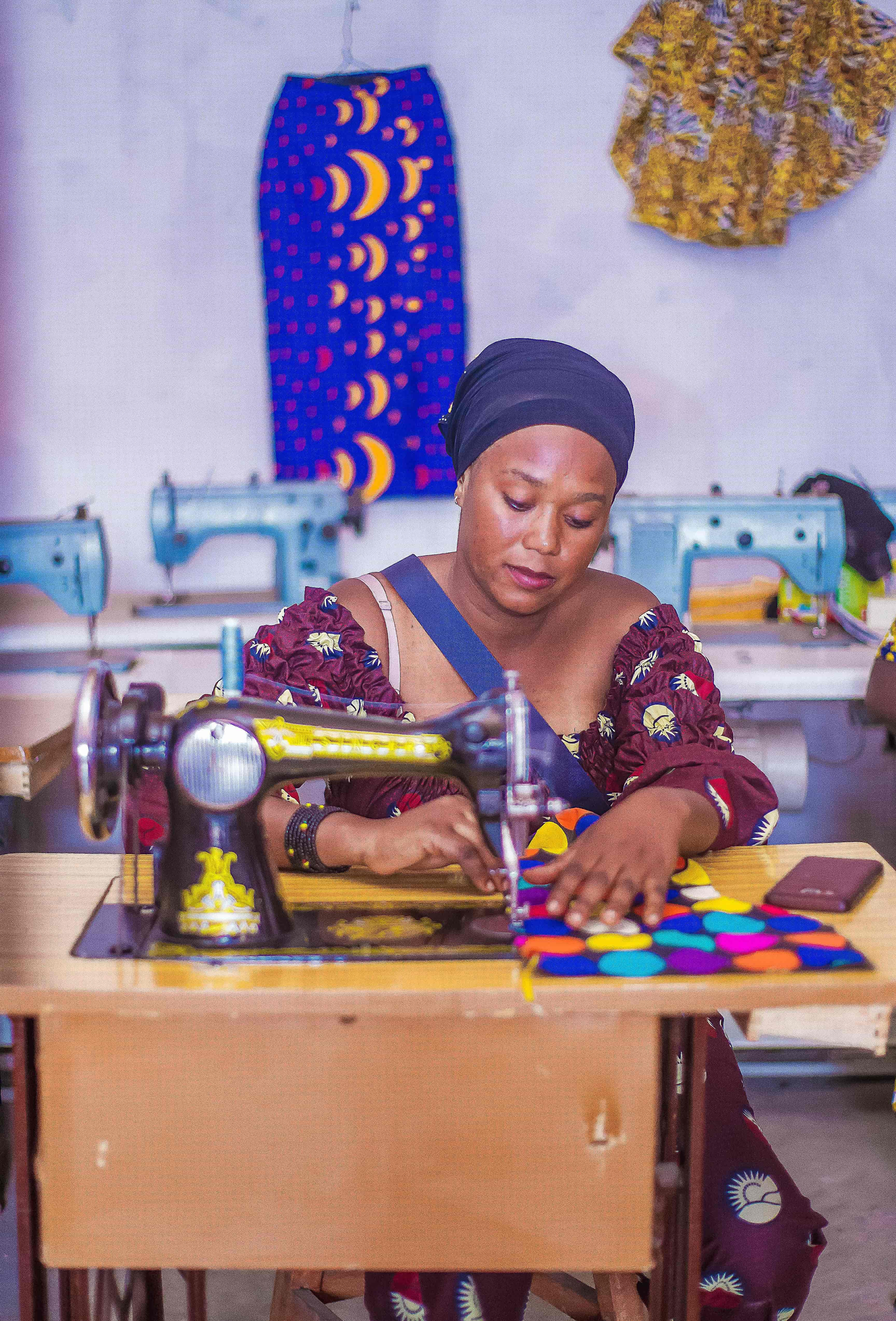
Unamukore Gisenyi was founded in 2012 by 46 women who were in the business of selling clothes. Justine Mugwaneza its President says, “Before our cooperative started, we used to sell clothes without paying taxes, and often used illegal routes (panya roads) between Rwanda and the Democratic Republic of Congo. Incomes were low and security was always an issue.”
When the District of Rubavu invested in various cooperatives in 2012, Unamukore received Rwf 1 million. Soon after, Pro-Femme/Twese Hamwe supported them to receive funding from the Business Development Fund which they invested in land and sewing projects. “We were interested in the Made in Rwanda Campaign although we never had enough material or equipment for garments. Pro-Femme/Twese Hamwe supported us to get the twelve sewing machines that we’re using now, and trained us to use the equipment,” Justin says. Unamukore Gisenyi Cooperative soon started attending trade fairs and began exporting their clothes to DRC. “We applied and received a bank loan of Rwf 33 million, based on collateral of the first property we acquired and used it to buy our own land and build a core working space. We are paying off that mortgage and look forward to owning our second property,” Justine states. Today, Unamukora Gisenyi Cooperative has a total of 115 members, all women. They have property worth Rwf 22 million (US$23,252), which they rent out to commercial and residential tenants.
Bora Nyirasengimana Ebole a member of the same cooperative says, “During my time at the cooperative, my life changed. My husband and I saved what I made and bought land on which we built a house. All my three children are in school and we have no issue raising the school fees. What I appreciate most is that I find more dignity in my work. Now I dress up well and sit in meetings with women leaders, something that I would never have done before joining Unamukora Gisenyi Cooperative,” says Bora with a smile.
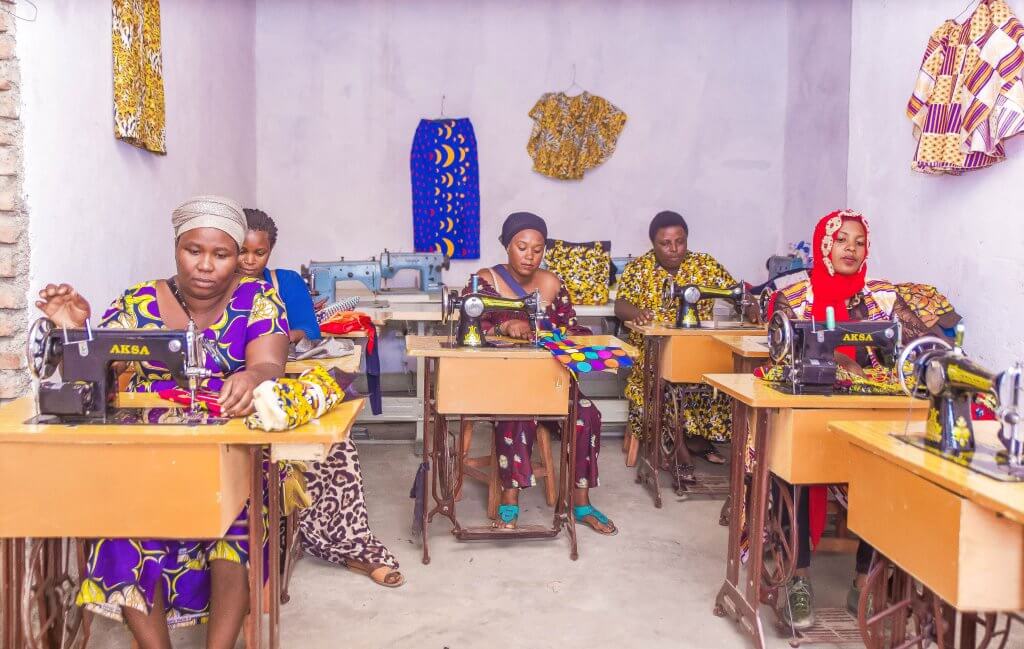
Unamukore Gisenyi Cooperative has a rotational work system for its members, people work on different days of the week so that everyone has a chance to make and sell their ‘Made in Rwanda’ clothes. Their main clients are based across the border in Goma. “At the moment, we require more support to get electronic sewing machines. Currently we cannot keep up with the demand from DRC using our old foot pedal sewing machines,” Justine says.
Value and volume of trade
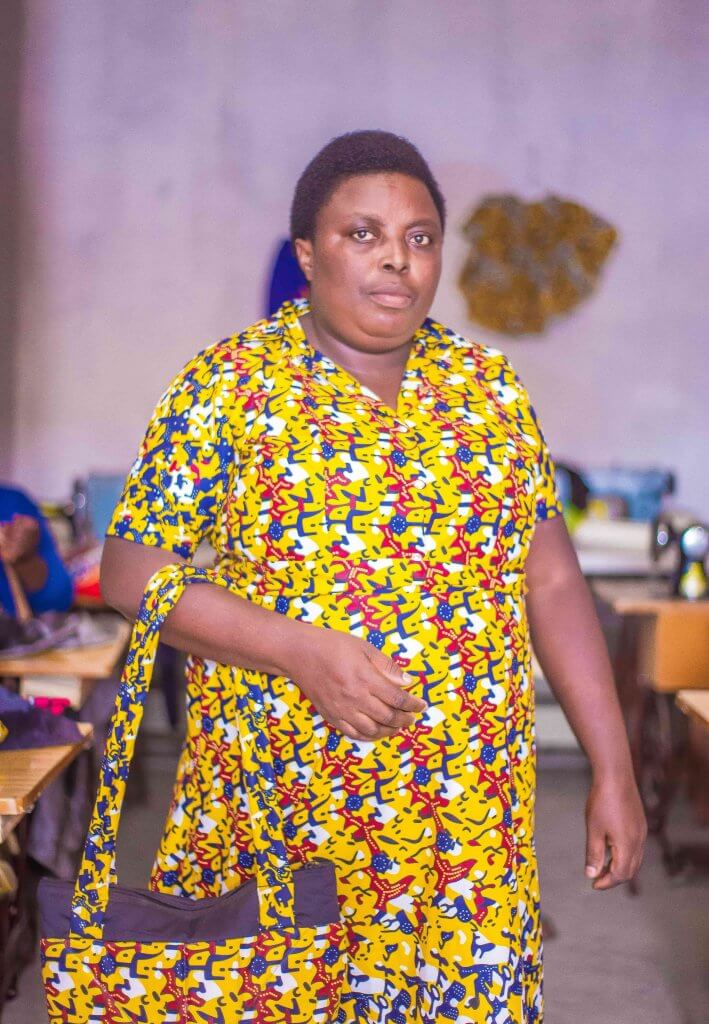
Forming cooperatives echoes the Rwandan government’s goal of building institutions that will propel trade and improve livelihoods. According to Emma Marie Bugingo, Executive Director of Pro-Femme/Twese Hamwe, “To date, 24 women cross-border cooperatives have acquired machines and equipment for value addition that will increase both quality and quantity of their products.” The TradeMark Africa and Pro-Femme/Twese Hamwe Programme has enabled 10 cooperatives gain new market opportunities as a result of project interventions.
In terms of trade volume, Emma Marie states that, “trade volume increased by 64% and export value increased by 72% among the target group. Twenty-four cooperatives received financing for value addition projects through Pro-Femme Twese Hamwe, and twenty-three cooperatives secured funding from the Business Development Fund (BDF).”
There is continuous effort to resolve challenges such as sustainability of volume and quality, cooperative governance and that women can access travel documents for infants that they cross the borders with with.
Opportunities in need
Informal cross-border trade has been a source of livelihoods for border communities across many parts of Africa. In Rwanda, total informal exports in 2018 amounted to US$125.3 million. Women contribute the bulk of informal cross border trade, accounting for 74% of traders operating between Rusizi-Bukavu and Rubavu-Goma border crossings.
Gender-based violence, extortion, financial non-inclusion and a lack of knowledge regarding the rules and regulations governing cross-border trade inhibit these women from attaining their full potential. Between 2012 and 2018 with support from TradeMark Africa, Pro-Femmes/Twese Hamwe set out to empower Rwandan informal cross-border traders. Within six years, 63 cooperatives with over 3,000 members (98% women) were trained on how to formalise their trade and gain access to markets and finance. This women and trade programme was funded by the Netherlands in its first phase and ran across nine main border districts. Pro-Femmes Twese Hamwe is an umbrella of 53 women’s economic empowerment associations representing over 45,000 individual members.
Between 2019-2023, the programme will support ninety-two cross-border cooperatives representing 3,500 traders across nine border districts in Rwanda.

